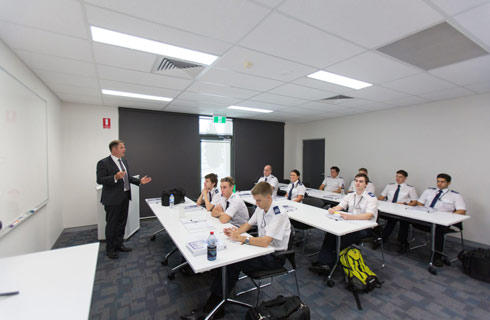Doctor of Philosophy in Electrical and Computer Engineering - Schweitzer Power and Energy Systems

学历文凭
Ph.D.

专业院系
通用计算机工程

开学时间

课程时长

课程学费

国际学生入学条件
Master's Degree Required.
Cumulative Grade Point Average from most recently conferred undergraduate, graduate, or professional degree: 3.25 or equivalent (A=4.0; Average GPA of admitted students is 3.6)
TOEFL iBT - 80 (Minimum Scores: Writing 22, Speaking 18, Listening 14 and Reading 19)
TOEFL PBT - Reading 19, Listening 14 and Writing 22
IELTS - An overall band score of 6.5 is required for admission with the following minimum section requirements:
Reading 6.5, Listening 6.0, Speaking 6.0 and Writing 6.0
IDP—雅思考试联合主办方

雅思考试总分
6.5
了解更多
- 雅思总分:6.5
- 托福网考总分:80
- 托福笔试总分:160
- 其他语言考试:NA
CRICOS代码:
申请截止日期:请 与IDP联系 以获取详细信息。
课程简介
his area focuses on electrical power engineering and the electrical to non-electrical energy conversion process. Topics of interest include electromechanical component design, power electronics design, passive component design, power magnetics, electric drives, electric propulsion systems, vehicle (ship, spacecraft, automotive) electric systems, and power system control and stability.<br><br>In the push for sustainability and reduced carbon emissions, energy conversion technologies are critical. Energy sources and systems faculty are at the forefront of modern electromechanical component and system design, analysis, and control. They also have significant efforts in power electronics particularly in the areas of control and passive component design.<br><br>As the demand for higher reliability and efficiency on aircraft and marine platforms increases, hydraulic control systems are being replaced by electric drive systems. Research is underway to accurately model the performance of alternative power-by-wire electric drive systems. Computer simulation packages are being designed that accurately evaluate complete power-by-wire systems, including actuators, converters, electric drives, and electrical distribution systems. Evaluation and design of electric propulsion systems is also in progress. The deregulation of the electric utilities coupled with the integration of alternative energy sources provides new challenges in power distribution and control. Current research includes evaluating the impact of deregulation on power quality, optimal control of the distribution system, and instability detection.<br><br>The Schweitzer Power and Energy Area has several research and undergraduate laboratories including the Grainger Energy Conversion and Microgrid Laboratory, the Grainger Power Magnetics Fabrication Laboratory, the Energy Storage and Material Characterization Laboratory, the Electric Vehicle Systems Laboratory, the Energy Systems Simulation Laboratory, the High Speed Machines Laboratory, the Alternative Energy Grid Integration and Systems Laboratory, and the Special Projects Laboratory.
相关申请

预科

奖学金

实习机会

在校学习

跨境学习

校园授课-线上开始

在线/远程学习
学校排名
世界排名
64
数据源:泰晤士高等教育世界大学排名
本校相关课程
Doctor of Philosophy in Statistics

学历文凭
Ph.D.
下一个开始日期
课程费用总额
Doctor of Philosophy in Mathematics

学历文凭
Ph.D.
下一个开始日期
课程费用总额
Doctor of Philosophy in Computer Science

学历文凭
Ph.D.
下一个开始日期
课程费用总额
Doctor of Philosophy in Biological Sciences

学历文凭
Ph.D.
下一个开始日期
课程费用总额
Doctor of Philosophy in Management - Strategic Management

学历文凭
Ph.D.
下一个开始日期
课程费用总额
其他相关课程
计算机工程应用科学学士学位(合作)

滑铁卢大学
泰晤士高等教育世界大学排名:

学历文凭
Bachelor Degree
下一个开始日期
课程费用总额
电气与计算机工程哲学博士

达尔豪斯大学
泰晤士高等教育世界大学排名:

学历文凭
Ph.D.
下一个开始日期
课程费用总额
电气和计算机工程应用科学硕士

达尔豪斯大学
泰晤士高等教育世界大学排名:

学历文凭
Masters Degree
下一个开始日期
课程费用总额
电气和计算机工程学硕士

达尔豪斯大学
泰晤士高等教育世界大学排名:

学历文凭
Masters Degree
下一个开始日期
课程费用总额
电气与计算机工程哲学博士

多伦多都会大学
泰晤士高等教育世界大学排名:

学历文凭
Ph.D.
下一个开始日期
课程费用总额
电气和计算机工程学硕士

多伦多都会大学
泰晤士高等教育世界大学排名:

学历文凭
Masters Degree
下一个开始日期
课程费用总额





